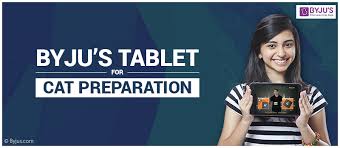
🧵
On my fave startup + tech podcasts:)
1/18
On my fave startup + tech podcasts:)
1/18
Barton Biggs, research guru turned hedge fund manager famously classified people into visiles & audiles (ref ‘Hedgehogging’).
Visiles absorb info via eyes (reading)
Audiles via ears (talking / listening)
(Youtube wasnt too popular then for it clearly breaks his split!)
2/18
Visiles absorb info via eyes (reading)
Audiles via ears (talking / listening)
(Youtube wasnt too popular then for it clearly breaks his split!)
2/18
Now I am a visile & I have struggled w podcasts:)
Podcasts are great content of course, & lots there you don't get easily in writing. But I have wondered as to why I should take out 40-50mins to listen to a podcast when in that time, I can instead breeze through 3-4 posts?
3
Podcasts are great content of course, & lots there you don't get easily in writing. But I have wondered as to why I should take out 40-50mins to listen to a podcast when in that time, I can instead breeze through 3-4 posts?
3
Thankfully more & more podcasts are coming w transcripts.
This is terrific, for podcasts help generate content that wouldn’t have easily emerged. Here is why.
4/18
This is terrific, for podcasts help generate content that wouldn’t have easily emerged. Here is why.
4/18

The single best podcast - in quality of audio content + transcript - IMHO is @joincolossus - the new avatar of @patrick_oshag ’s Invest Like The Best. Well-curated top drawer guests & a practiced + smart host; + well-organized searchable transcripts. 5/
joincolossus.com
joincolossus.com
Other high quality podcasts w transcripts (in alphabetical order) include @acquiredfm where hosts @gilbert & @djrosent go behind the scenes of a business transition, or an M&A. Transcripts for most episode available; expect delays for newer episodes. 6/18
acquired.fm
acquired.fm
VC @ngpedro & AppAnnie founder @bschmitt discuss interesting topics and trends across tech. Check out their 3-part SaaS Primer. 7/18
decipheredshow.com
decipheredshow.com
Linkedin founder + @GreylockVC @reidhoffman interviews founders and thinkers on Masters of Scale. 8/18
mastersofscale.com
mastersofscale.com
2 Desi podcasts now!
PrimeTime from @Primevp_in - primevp.in/content/podcas…
Matrix Moments from @matrixindiavc - matrixpartners.in/blog?qs=The%20…
👏🏽👏🏽👏🏽 @rbalaraman @salonieganju @TheSwamy @amitsomani 9/18
PrimeTime from @Primevp_in - primevp.in/content/podcas…
Matrix Moments from @matrixindiavc - matrixpartners.in/blog?qs=The%20…
👏🏽👏🏽👏🏽 @rbalaraman @salonieganju @TheSwamy @amitsomani 9/18
Mike Maples @m2jr of @FloodgateFund interviews founders, thinkers & VCs. The one where he interviews Andy Rachleff discussing PMF is pure gold. 10/18
greatness.floodgate.com/episodes
greatness.floodgate.com/episodes
exVC turned journo @ruima interviews Chinese startup founders and some VCs on @techbuzzchina. Good look at Chinese companies including Bytedance (she is writing a book on Bytedance). 11/18
techbuzzchina.com
techbuzzchina.com
Nick Moran’s @TheFullRatchet
One of the OGs of venture + startup podcasting. In its 7th yr. Transcripts for the more recent episodes only, sadly. 12/18
fullratchet.net
One of the OGs of venture + startup podcasting. In its 7th yr. Transcripts for the more recent episodes only, sadly. 12/18
fullratchet.net
The Next Billion.
GGVC's @hanstung & Robin Li interview many great founders, incl many Chinese founders here ofc (and this podcast is another great China resource). We are on Season 2. Season 1 was called '996' (links to them in the same piece). 13/18
nextbn.ggvc.com
GGVC's @hanstung & Robin Li interview many great founders, incl many Chinese founders here ofc (and this podcast is another great China resource). We are on Season 2. Season 1 was called '996' (links to them in the same piece). 13/18
nextbn.ggvc.com
The last is an Indian one, @100xEntr by @siddharthaa7 who curates an interesting set of investors + founders to interpret the Indian startup ecosystem. 14/18
100xentrepreneur.com
100xentrepreneur.com
I am ofc leaving out some familiar ones such as
@twentyminutevc by @HarryStebbings
Venture Stories by @eriktorenberg
as they dont have transcripts.
(20VC has transcripts for more popular guests though, i noticed recently.) 15/18
@twentyminutevc by @HarryStebbings
Venture Stories by @eriktorenberg
as they dont have transcripts.
(20VC has transcripts for more popular guests though, i noticed recently.) 15/18
The content in these podcasts👆🏽is high quality content, in text (with high scan rate). If you are a visile then you are in luck:)
I have been slowly moving my information diet from substack towards podcast transcripts. 16/18
I have been slowly moving my information diet from substack towards podcast transcripts. 16/18
A dream product (one I have fantasised putting hobby money in) is to create a custom zine where folks can request different combos of transcripts (toting to say ~100pgs), which can be @Printo_India ’d + @DunzoIt ‘d to the buyers, every month, for lean back, leisurely reading. 17/
• • •
Missing some Tweet in this thread? You can try to
force a refresh








